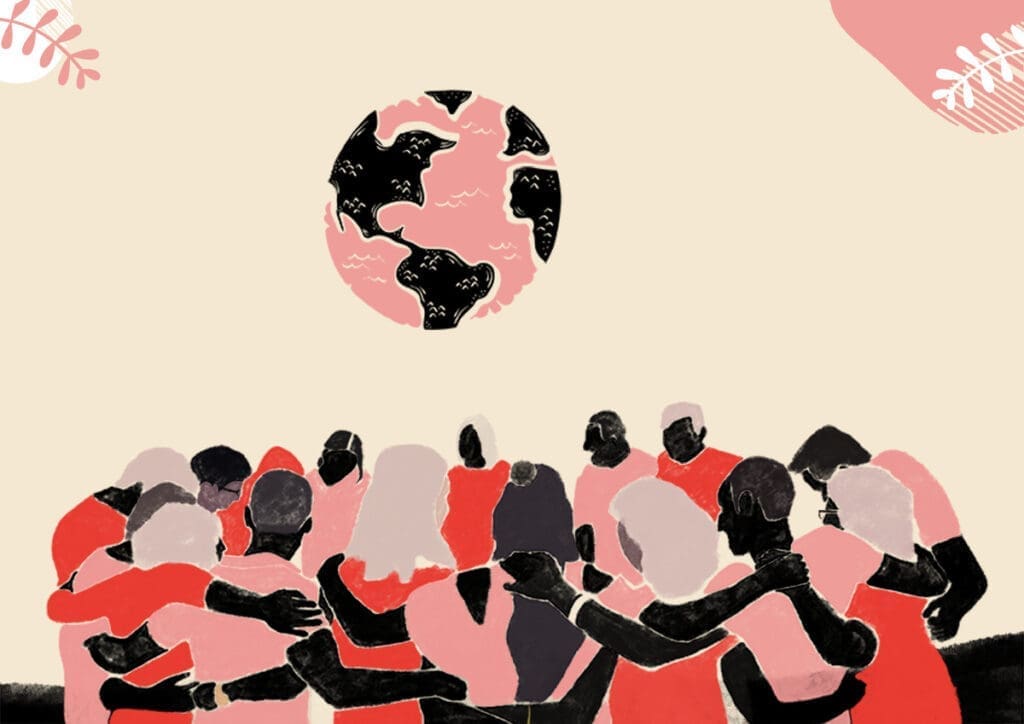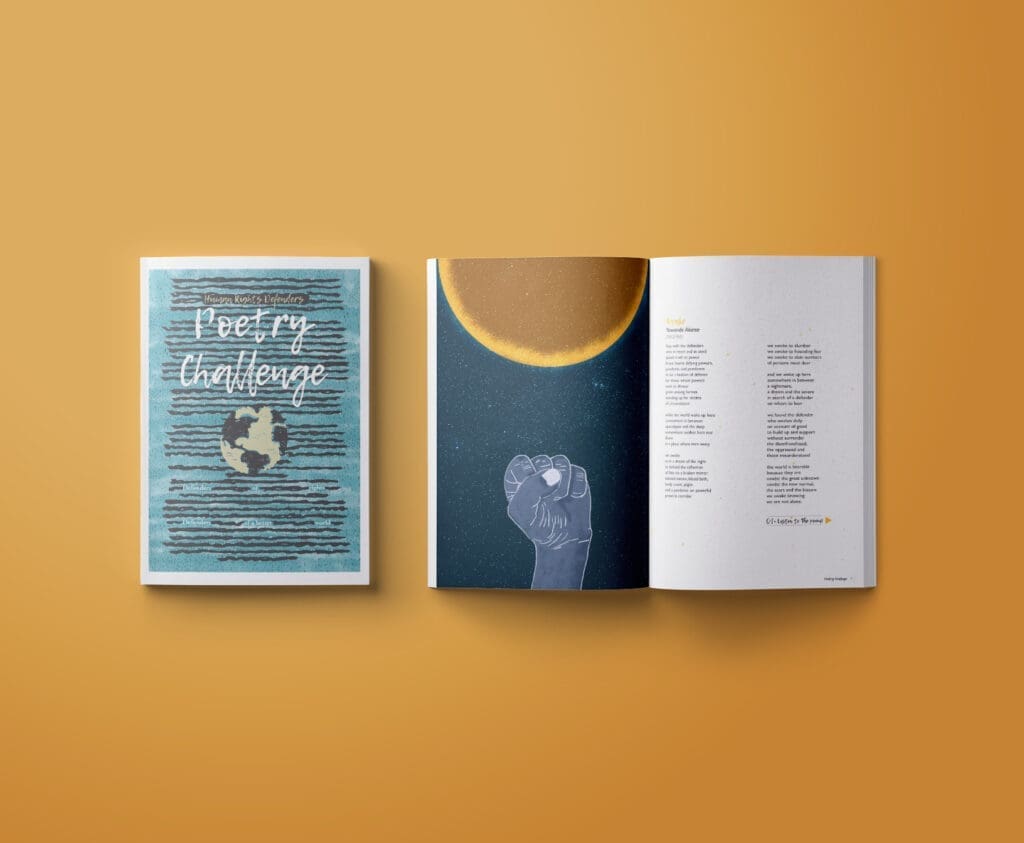Protection International (PI) created a poetry challenge as a way to support and celebrate human rights defenders who embody the power of peaceful protest, and who are pushing social movements forward, even amidst the challenges of a global pandemic. We chose to highlight poetry, because poetry is a critical element of human rights movements, and it has been throughout history.
The poem “The Love Song of J. Alfred Prufrock” by T.S. Eliot, which was published in 1915, challenges traditional notions of masculinity and identity. It encourages readers to question their own assumptions about gender roles and societal expectations, inspiring artists and activists that challenge homophobia and advocate for LGBTIQA+ rights.
And indeed there will be time
T.S. Eliot
For the yellow smoke that slides along the street,
Rubbing its back upon the window-panes;
There will be time, there will be time…
Time for you and time for me,
And time yet for a hundred indecisions,
And for a hundred visions and revisions,
During the Civil Rights Movement in the United States, poetry was used as a means of protest and awareness raising. Maya Angelou, Langston Hughes, and Gwendolyn Brooks used their work to draw attention to the injustices of racial segregation and discrimination. These words continue to serve as powerful statements of resilience and resistance, encouraging generation after generation of human rights defenders to keep pushing forward in the face of adversity.
Leaving behind nights of terror and fear
Maya Angelou
I rise
Into a daybreak that’s wondrously clear
I rise
Bringing the gifts that my ancestors gave,
I am the dream and the hope of the slave.
During the apartheid era in South Africa, poetry was used to express resistance to the racist policies of the government. Poets such as Dennis Brutus and Mongane Wally Serote wrote poems that criticized the apartheid system and inspired the anti-apartheid movement.
And, shaper than our strain, the passion
Dennis Brutus
Against our land’s disfigurement and tension;
Hate gauged out deeper levels for our passion
During the dictatorship of Augusto Pinochet in Chile, poets such as Pablo Neruda and Gabriela Mistral used their work to speak out against political oppression and violence, and support the victims of the dictatorship.
The weeping cannot be seen, like a plant
Pablo Neruda
whose seeds fall endlessly on the earth,
whose large blind leaves grow even without light.
Nigerian feminist poets, such as Chika Unigwe, have used poetry to challenge patriarchy and advocate for women’s rights. Syrian poets, such as Maram al-Masri, have used poetry to express the experiences and struggles of Syrian refugees. Palestinian poets, such as Mahmoud Darwish, have used poetry to express their struggle for independence and self-determination. And the list goes on.
Poems have provided a voice for the marginalized and disenfranchised, inspired change and action, and challenged societal norms and expectations. And the poems captured in the Human Rights Defenders Poetry Challenge book highlight some of the voices that are pushing the human rights movement forward, and inspiring activists of today and tomorrow.

The process behind the Human Rights Defenders Poetry Challenge book
This poetry collection features works from poets and human rights defenders hailing from various countries, including India, the Philippines, Kenya, Thailand, Brazil, and Guatemala, among others. The poems are presented in their original languages, such as English, Spanish, French, Portuguese, Swahili, and Thai, as well as professional poetic translations into English. Each poem is accompanied by the author’s voice, enabling readers to experience the intended expression and emotions conveyed through the work.
Compiling this anthology was a lengthy process, involving the review of 438 poems submitted by artists and activists representing 58 countries worldwide, spanning from Cameroon to Cuba, from Ecuador to Eswatini, and from Peru to the Philippines. We extend our appreciation to all the talented individuals who participated in our poetry challenge, and we especially commend the 21 submissions from artists under the age of 18.
The top three poems were selected by a small committee comprising the Poetry Challenge organizing team with considerations from the expert judges. We hope you enjoy this collection of poems, and that it helps you to keep pushing forward towards the human rights goals we are collectively working to achieve. Once again, thank you to our expert judges who helped us select the finalists: Henry Raby (English poem judge), Rosa Chávez (Spanish poem judge), Thalie Envolée (French poem judges), Maria Amalia Souza (Portuguese poem judge), Ida Aroonwong (Thai poem judge) and Guillaume Bisimwa (Swahili poem judge).
Graphic design, layout, artwork, animation and illustrations by Aítor García.
Text by Meredith Veit.


